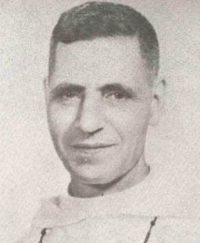The new Constitution is neither democratic nor dictatorial. It is a kind of constitutional dictatorship. Officially, the Philippines is a Republic, but in reality it is neither democratic nor representative. The President possesses great powers which no other elective chief of state has. He is to be a dictator without checks. Aside from being the Commander-in-Chief of the Armed Forces (when there would be one) and from occupying the position of Prime Minister, he has also the power to appoint all high government officials, Cabinet members, Supreme Court justices, judges, bureau chiefs, ambassadors, governors and mayors without the need of obtaining the approval of the Assembly, since the legislative body is also the President’s creation. Half of the membership of the legislature is to be composed of provincial governors and mayors appointed by the President, and the other half would be composed of delegates—one from each province or city—elected by the Kalibapi which is also controlled by the President.
As it is written, the President thus enjoys unlimited powers. The Constitution is Republican in form, but dictatorial in substance.
Dr. Laurel, who is the principal author of the Constitution and who is generally felt to be the logical choice as first President of the Republic, had for a long time been an advocate of an authoritative and quasi-dictatorial national leadership. In my conversations with him before the war, he had signified his preferences for strong and energetic executives who alone could curtail the abuses of policies and who alone could effect reforms beneficial to the country.
The members of the Constitutional Commission publicly and privately declared that the military authorities did not interfere in the drafting of the Constitution, and that they discussed and approved the same without instructions or suggestions from any Japanese advisers. They commended the tact and prudence of the Commander-in-Chief of the Armed Forces and Chief of the Military Administration who gave the Commission complete freedom of action. Both these gentlemen and the government of Tokyo approved the Constitution in toto, although some military officials in the Japanese capital were opposed to some of its provisions.
A trustworthy person hinted to me that Dr. Laurel was approached twice by a high Japanese official with the proposal that in the interest of the Philippine Republic, Laurel should declare war against the Allies as soon as independence is granted. But because of the vigorous objection of Dr. Laurel who is now the principal figure in the Philippine government, the official did not press the matter further… for the time being.
